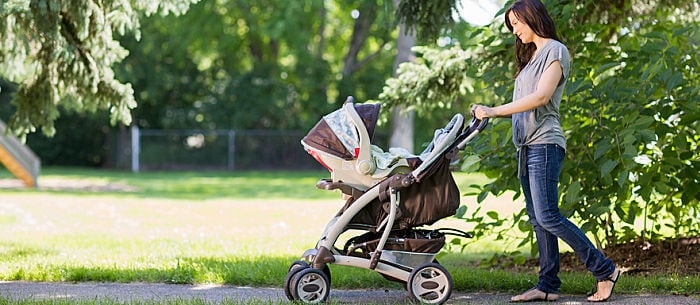Eating well after the birth of your baby is just as important as it is during your pregnancy. Your postpartum diet should be balanced with a variety of protein, carbohydrates, fruits and vegetables that will help you shed the extra pounds and give you enough energy to care for both yourself and your little one. If you’re breastfeeding, you’ll already be on your way to dropping some weight because nursing burns 300 to 500 calories a day. But even if you’re not nursing, you can still diet safely and effectively if your postpartum diet plan is a smart one.
Here are 6 tips for eating healthy after the birth of your child:
- Take Your Time
Don’t rush too soon to diet after the baby is born, because your body needs time to recover, especially if you’ve had a Cesarean section. Most women can ask their doctor about a postpartum diet at the six-week checkup. Being a new mum is exhausting, so don’t deprive yourself by signing up for a very restrictive diet. Any plan that recommends drastically cutting calories or eliminating a particular food isn’t a good one. All the different groups are necessary to produce enough nutrients for a new mum. - Track Your Calories
If a mum is not breastfeeding, her caloric needs will go back to her pre-pregnancy levels at around the 6-week mark. About 1,800 to 2,200 calories a day with regular exercise at this point is appropriate for initiating weight loss at a reasonable rate. Of course, this varies, based on a woman’s size and how much she wants to lose. - Choose Good Foods
Aim to eat meals and snacks that are high in protein and fiber to keep energy up and hunger under control. For example, low-fat cheese, whole grain bread, grape tomatoes and fresh fruit make an easy lunch. Hard-boiled eggs are another smart choice, either for a snack or at breakfast. (Make them a dozen at a time and store in the fridge where they’ll last for up to a week.) Or make an omelet or scrambled eggs with leftover veggies for lunch or dinner. - Make a Plan
If you have questions about setting up a postpartum diet, contact a registered dietitian for help. You can also set yourself up for success by stocking the house with healthy foods and doing a little cooking ahead. You might make a batch of turkey or vegetable chili in a slow cooker and freeze some in batches to eat later in the week. - Embrace Convenience
New mums shouldn’t feel guilty about enjoying a ‘fast’ meal”. There are plenty of nutritious options in the freezer section of your supermarket that can be balanced with a glass of milk and a piece of fruit. Peanut butter on toast with slices of banana, canned tuna on salad, a bowl of cereal with fruit or a smoothie are other healthy and super convenient choices. - Welcome Visitors
If you’ve got friends and family coming to see the baby, try to subtly steer them away from bringing you high-calorie treats. Perhaps you might ask them to visit with your bundle of joy while you head out for a brief walk.
Try not pressure yourself to lose the weight too quickly. Pregnancy was a nine-month event, so your postpartum diet time frame might easily be this long as well. Remember, your baby will love you no matter what the scale says!
*This article is for general informational purposes only. It is not intended nor implied to be providing medical advice and is not a substitute for such advice. The reader should always consult a health care provider concerning any medical condition or treatment plan. Care.com assumes no responsibility or liability with respect to use of any information contained herein.
